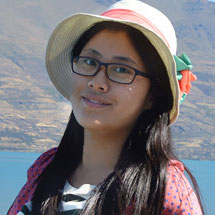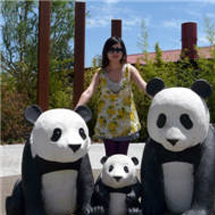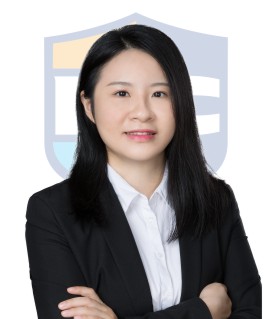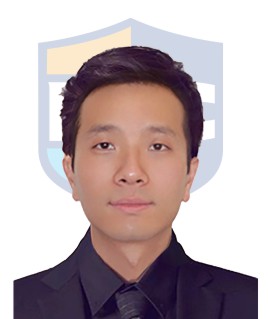雅思写作范文之Culture Shock
Culture Shock
Culture Shock The United States of America is a country in which many people from all over the world comes to live harmoniously with each other. Unlike Canada, which is a multicultural country, it is a melting pot since each person brings his peculiarity to enrich the culture of this country. But this melting process is not always without pain or hurt. I felt the life in Canada is more comfortable According to John J. Macionis, the author of Sociology, secondary Canadian edition. Culture shock is a state of bewilderment, anxiety, disorientation and distress as an individual suddenly exposed to a social or cultural environment radically different from his own. It happens frequently for the international students and immigrants. Culture conflicts appear not only when students come to school and learn new ways of living there, but also when they come back home and live with their own families or their own societies. The reason for that is the students are young and easy to change, but the adults are not ready to follow their example and adapt to the new situation. When I first come to live in the states, my system of values must change in order for me to survive. When I first came to the states, I was unprepared to live there, that's why I always suffer from stress because of culture shock. I feel that student-teacher relationships in North American are not the same as they were in Hong Kong. Hong Kong students often have high regard for their teachers. In Hong Kong, students never call their teacher by their first name, because it is not respectful to the teacher. Also, they hesitate to ask or to answer questions in class because they don't want to lose their face in showing their ignorance in front of the class, and sometimes because their English is not good enough to form a clear question. And if they give the wrong answer it not only humiliates them but also brings shame on their families. Hong Kong students were taught to be modest and not to display their knowledge freely until being specially called for. All these things can lead to misunderstanding since my teachers thought that I was too shy, or stupid, or abnormal. Sometimes when being directly asked for some questions, unlike American students, which are more creative and can always give a fast answer, I have to take a long time to think the question over, because I was afraid to give the incorrect answer. Teachers often feel uncomfortable with my silence and tend to interpret my silence as an indicator of my inability to answer a question. It's a normal thing that American teachers expect Asian students to ask them to explain something difficult. However, Hong Kong students don't do this as we have seen earlier. Moreover, their feedback sometimes leads to more misunderstanding. When teachers see their students listen to them in smiling or in head nodding, they imagine that these students understand the subject very well. In reality, some students mask their emotions and just act like that to be polite, since they think that if they would ask question, the teachers would be hurt for their teaching was not clear enough for the class. I was having low expectation from the teacher at that time and that affects my learning. I was stressed and felt disorientation all the time in school. Many teachers do not treat their minority learners as intelligent students, and perhaps as a result, their minority students fail in their classes (Scarcella, 139). In Hong Kong, students stay in the same classroom with a fixed seat everyday in a same year while their teachers come to their class to teach them. Therefore, students can have many friends who always do the same things with them. This helped to build a more close and stable relationship between students. Students are more interdependent. What are important is not me but we. In America, the people are more individualistic. People only pursue their own personal achievement and fulfillment. Relationships between people are often many but temporary or casual. I felt people only care about themselves and I felt that they are very selfish. At that time I always felt lost and lonely because I felt it is difficult to find a good friend to talk to. Relationship are always causal, no one would even cares about you. People in different culture usually have different values. In speaking with friends, I had misunderstanding too. I have a friend in school who was Middle American. He often tells people how healthy he is. It gave me a feeling that he likes to show off. But I know he was not showing off, he was just like to expresses himself. Because traditional Asians often look down on material things and don't think that these things could give them more value. So, I asked my friend the price of his houses, cars or clothes, and he was very surprised since people don't do so. Moreover, people there don't ask someone's age, for people don't want to show that they are old. But in Chinese culture, the elderly are very respected for they are considered as knowing the secret of life, and, therefore, wiser than the youngster. So Asian people are not hesitant to ask and tell their ages. Body contact can be another subject for misunderstanding. In my home country, people don't kiss or hug somebody of the opposite sex in public places. I was very surprised to see people kissing each other in front of me. On the other hand, in Asian countries, homosexuality is almost non- exist, because even if people are homosexual they will always hide it as a secret. So two girls or two boys can walk together hand in hand and no one is shocked. But if they do so in America, their American friends will be horrified. The main reason that I experienced culture shock in America or in other countries because I had practiced a particular culture as my basis of reality and I am strongly attached to my own culture. Ethnocentrism is the practice of judging another culture by the standards of one's own culture(Macionis, 80). Ethnocentrism also generates misunderstanding and sometimes conflict. I agree that I am ethnocentric but I think ethnocentrism is difficult to avoid because culture is learned though enculturation rather than inborn. You never know what are people's values and norms in other societies if you are not living in that society and try to learn that culture. On the other hand, the idea of cultural relativism is that the practice of judging a culture by its own standard. Which means what is right or wrong to do is only determined by one's own society. So there are no standards to judge other societies and there is no universal morality. This idea may be very persuasive and reasonable to many people. But I think there is always universal truth in the world, we can sometimes judge other society in a logical way. For example, today in Indonesia, Chinese people are discriminated. Many Chinese Indonesians are being killed, raped and attacked. If cultural relativism is totally true, then there is no reason for us to think that our peaceful society is better than the violence society that used to practice genocide. Despite all these culture conflicts, I managed to earn American way through schools, colleges and become respectable citizens. Inside this country, there still are many ethnic communities where people from ethnic groups come to share their lives, trade foods, and celebrate festivals. That adds to the diversity of American life and helps mainstream American people to understand more easily other people in the world.









